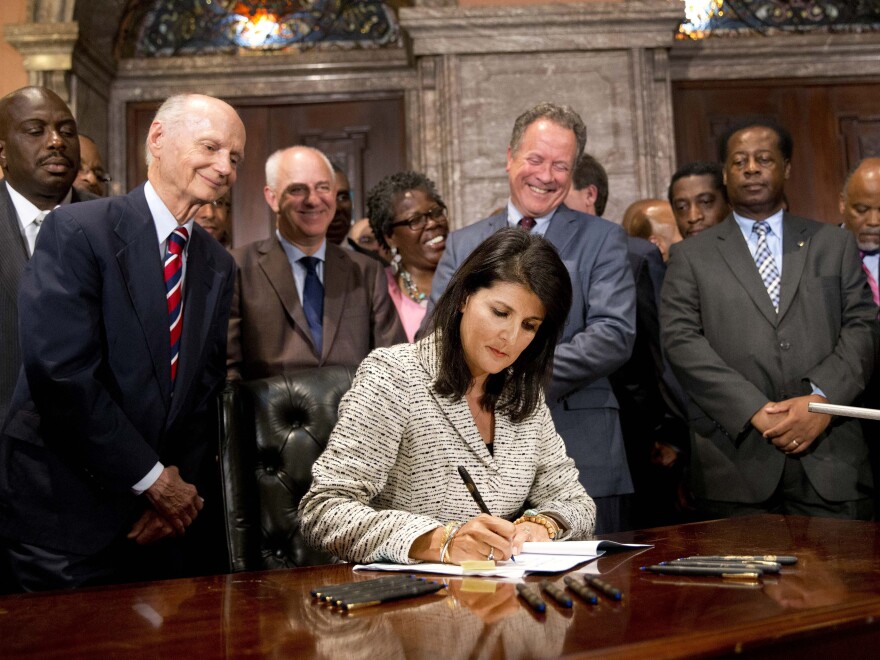Former South Carolina Gov. Nikki Haley is facing significant backlash after failing to mention slavery as a driving force behind the Civil War during a campaign stop in New Hampshire.
At an event on Wednesday, a voter asked Haley: "what was the cause of the United States Civil War?"
She replied that the cause "was basically how government was going to run, the freedoms, and what people could and couldn't do."
"I think it always comes down to the role of government and what the rights of the people are," Haley continued. "And I will always stand by the fact that, I think, government was intended to secure the rights and freedoms of the people."
After Haley gave her answer, the voter told her that it was "astonishing" that she gave an answer "without mentioning the word 'slavery.'"
Last night,President Biden said on X in response to a video of this exchange that the Civil War was indeed "about slavery."
It was about slavery. https://t.co/q9bTDvtPne
— Joe Biden (@JoeBiden) December 28, 2023
During an interview with a local radio station on Thursday, Haley addressed what happened.
"Of course the Civil War was about slavery," she said. "We know that. That's the easy part of it."
Haley explained that she was interested in talking about what lessons should be drawn from the Civil War and defended her answer to the voter.
"I know it's about slavery," she said. "I am from the South."
Haley has acomplicated history when it comes to issues of race. As a woman of color, her campaign was angling to strike a different tone on issues of race and identity – especially in comparison to her chief rival in the GOP primary, former President Donald Trump.

As South Carolina's governor, Haley ordered the confederate flag be removed from the grounds of the state capitol following the 2015 shooting of Black parishioners at a church in Charleston in 2015.
Haley also condemned Trump following the racist and antisemitic gathering in Charlottesville, Va., in 2017. (She also served as U.N. ambassador to Trump from 2017 to 2018.)
The Republican Party, though, has been striking an overall different tone when it comes to issues of race and the country's history with slavery and white supremacy. Republican governors, including some of Haley's rivals in the race, have been eliminating diversity and inclusion efforts in higher education, as well as banning books that are about race.
Backlash to Haley's comments comes less than three weeks before Republican voters start voting in early primary states. The Iowa caucus, the first primary contest, is Jan. 15.
Haley's campaign, in particular, has had a surprising amount of momentum in the last several months. The once crowded field of presidential hopefuls has been shrinking ahead of early state elections but Haley has been one of the few candidates actually gaining more support.
Just this week, there have been reports that Florida Gov. Ron DeSantis' campaign isstruggling and businessman Vivek Ramaswamy hascut TV ad spending.
Trump has had a commanding lead in the polls in early states and nationally. Haley, however, has been the only candidate in the primary that has presented any sort of challenge for the former president.
Haley routinely polls second or third in early state polling and performs well when in head-to-head polling with Biden.
Copyright 2024 NPR. To see more, visit https://www.npr.org.








